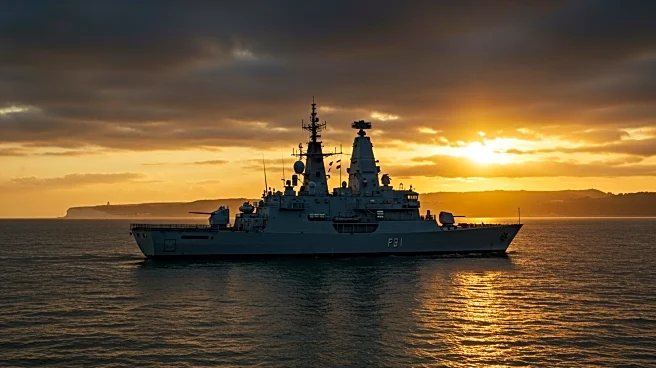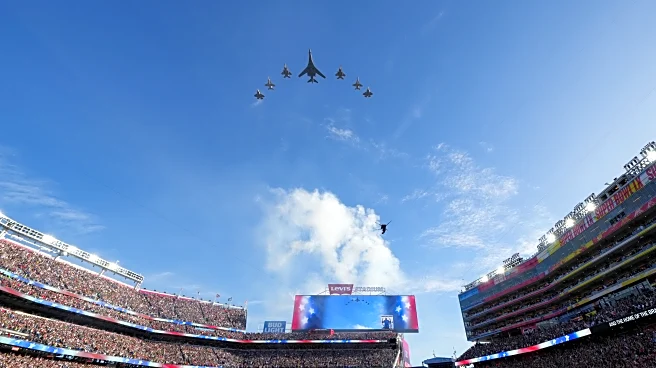What's Happening?
The Royal Navy has tracked the Russian destroyer Vice Admiral Kulakov and two accompanying vessels as they navigated through the English Channel. This operation is part of the Royal Navy's ongoing efforts to monitor Russian naval movements in British waters. The patrol ship HMS Trent began tracking the destroyer off Great Yarmouth and continued to follow it westbound through the channel. The Russian convoy included the military cargo ship Sparta and the tanker General Skobelev, both heavily sanctioned vessels. The convoy paused briefly in Lyme Bay before proceeding into the North Sea and onward to the Baltic.
Why It's Important?
The tracking of Russian naval movements by the Royal Navy underscores the strategic importance of the English Channel as a vital maritime route and the need for vigilance in monitoring foreign military activities in UK waters. This operation highlights ongoing geopolitical tensions between Russia and Western nations, with naval movements serving as a form of power projection and signaling. The presence of heavily sanctioned vessels in the convoy further emphasizes the complex interplay of military and economic factors in international relations. The Royal Navy's actions are crucial in maintaining national security and ensuring the safety of maritime routes.
What's Next?
The Royal Navy will likely continue its surveillance of Russian naval activities in the region, maintaining a presence to deter potential threats and ensure the security of UK waters. Future operations may involve increased collaboration with NATO allies to enhance maritime security and address broader geopolitical challenges. The ongoing monitoring of Russian movements may also lead to diplomatic discussions or actions aimed at reducing tensions and promoting stability in the region.
Beyond the Headlines
The tracking of Russian naval movements raises broader questions about the role of military forces in international diplomacy and the balance between deterrence and engagement. The operation reflects the complexities of modern naval strategy, where surveillance and intelligence gathering play critical roles in maintaining security. Additionally, the presence of sanctioned vessels highlights the intersection of military and economic policies, with sanctions serving as tools to influence state behavior and address security concerns.











